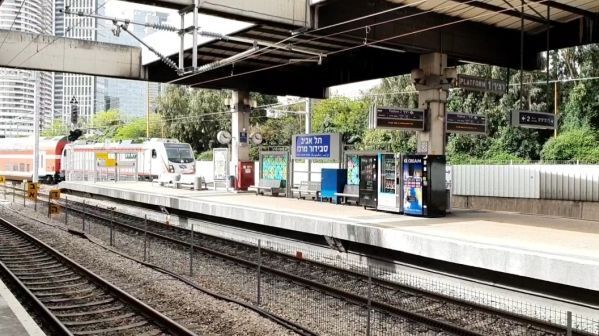The work was completed two months ahead of schedule and testing is set to continue over the next few weeks, including test runs with passengers.
Under the revised electrification plan, Spanish contractor Sociedad Española de Montajes Industriales (Semi), Spain, which was awarded a contract to deliver 25kV ac electrification across 420 route-km in December 2015, will continue to electrify all the lines. However, the contractor will significantly increase manpower to speed up delivery. Semi will also be free to recruit their own subcontractors.
The revised agreement was reached after several months of negotiation with the government and the Railways Directorate and an audit by an external company. Semi will now receive an increased payment of Shekels 500m ($US 139.3m), which will be paid depending on the contractor’s ability to meet the milestones and schedules anchored in the contract.
A variety of scenarios were considered during the review of the plan, including reducing the scope of Semi’s contract in favour of additional contractors. However, the decision was made to continue with Semi as the lead contractor while updating the outline to address the gaps in delivery which led to delivery difficulties and delays.
Momentum has picked up on the electrification project since IR general manager, Mr Michael (Micha) Maiksner, was appointed in July 2019. The project has benefitted from a subsequent change in electrification project management teams, which has improved trust between IR and Semi as well as increased labour times for electrification work on active tracks.
Electrification work is currently underway north of Tel-Aviv Savidor/Central to Tel-Aviv University and Hertzliya, and on the Sharon line to Ra'anana West, Ra'anana South, Hod Ha-Sharon, Sokolov, and Kfar-Sava Nordau stations. Works has also started on electrification of the Tel-Aviv Hahagana -Ashkelon line. A depot is also under construction at Ashkelon in preparation for the arrival of Siemens double-deck EMUs.
ETCS testing
In addition, IR has completed an initial test run with ETCS Level 2 on the Tel Aviv - Jerusalem A1 Link near Latrun Monastery.
Israel Railways reports that several operation scenarios were successfully checked and tested, adding that the ETCS Level 2 project has been accelerated following the suspension of passenger trains on the network due to the coronavirus pandemic.
Israel’s Shekels 2.5bn ETCS network project covers the 625km network as well as 255km of new lines and is split into three elements. Alstom is delivering onboard equipment for 192 trains with an option to fit an additional 34 trains under a contract awarded in December 2018; Thales is delivering trackside infrastructure installations while Nokia and Motorola are installing GSM-R across the network under a Shekels 350m contract signed in November 2017. The partners will also maintain the network under a 20-year contract. The Ministry of Communications allocated frequencies around the 900MHz band to IR.
IR plans to gradually introduce ETCS across the network with the system set to deliver increased capacity on the Ayalon Line from 10 trains per hour to 13 per hour. The A1 Link, which shares Ayalon infrastructure through central Tel Aviv, will operate four trains per hour per direction without disrupting conventional services. The complete ETCS Level 2 project is expected to be completed in 2023.
The new signalling programme and electrification will enable IR to increase the number of daily trains from 450 to 860 and achieve its goal of carrying at least 70 million passengers per year.

